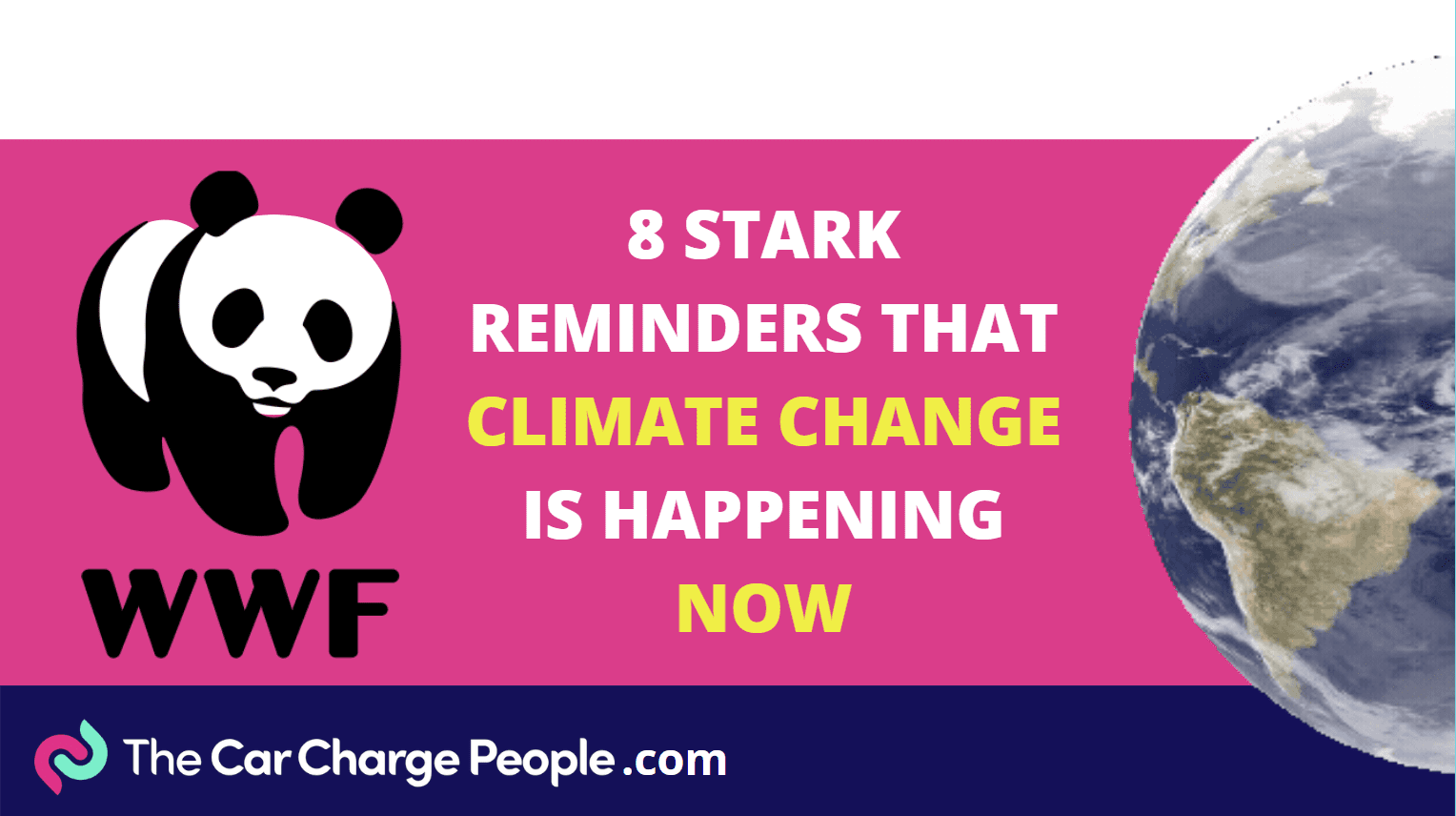
The following are climate change myths – debunked by WWF…
The Earths Climate Has Always Changed
Over the course of the Earth’s 4.5-billion-year history, the climate has changed a lot. This is true. But the rapid warming we’re seeing now can’t be explained by natural cycles of warming and cooling. The kind of changes that would normally happen over hundreds of thousands of years are happening in decades.
Global temperatures are now at their highest since records began. In fact, 17 of the 18 warmest years on record have all taken place since 2001.
Plants Need Carbon Dioxide
Plants do need carbon dioxide (CO2) to live. Plants and forests remove and store away huge amounts of carbon dioxide from the atmosphere each year. But the problem is, there’s only so much carbon dioxide they can absorb and this amount is getting less, as more and more forests are cut down across the world, largely to produce our food.
Let’s be clear, CO2 itself does not cause problems. It’s part of the natural global ecosystem. The problem is the quantity of CO2 that’s being produced by us as humans; there hasn’t been this level of CO2 in the atmosphere for 800,000 years.
Global Warming Isn’t Real As It’s Still Cold
Global warming is causing the Earth’s average surface temperature to increase. This is not only making heatwaves and droughts more likely but it’s also causing changes to our natural climate systems. These changes are making extreme weather events more likely and more severe. For example, hurricanes and storms are becoming more intense, moving slower and taking longer to die down.
Because of where we are, the UK & Ireland are likely to get more rain and wind as a result of climate change while New York will see more snow.
Climate Change Is A Future Problem
This is no longer an excuse not to act on climate change and push the burden onto future generations. Last year, the world’s leading climate scientists warned we only have 12 years to limit global warming to a maximum of 1.5C and avoid climate breakdown.
We’re already seeing the devastating effects of climate change on global food supplies, increasing migration, conflict, disease and global instability, and this will only get worse if we don’t act now. Man-made climate change is the biggest environmental crisis of our time. It threatens the future of the planet that we depend on for our survival and we’re the last generation that can do something about it.
Renewable Energy Is Just A Money Making Scheme
It’s a commonly-held belief that renewable energy is expensive, but this simply isn’t true! Solar power and onshore wind are the cheapest ways of generating electricity; meaning the energy they produce is cheaper than using nuclear, gas and fossil fuels.
The cost of renewables has fallen faster than anyone could have predicted. And yet the government are still backing dirty fossil fuels. Did you know the UK has the biggest fossil fuel subsidies in the EU? That’s right, they spend an eye-watering €12bn (£10.5bn) a year supporting dirty fossil fuels.
Polar Bear Numbers Are Increasing
This isn’t the case. Climate change is the biggest threat faced by polar bears. The Arctic is warming roughly twice as fast as the rest of the world, causing sea ice to melt earlier and form later each year. This makes it more difficult for female polar bears to get onto land in late autumn to build their dens, and more difficult for them to get out onto the sea ice in spring to feed their cubs. Their main source of prey, seals, are also affected by climate change, as they depend on sea ice to raise their young.
This means that in some parts of the Arctic, polar bears are having to survive with less food than they did previously. Polar bear populations are predicted to decline by 30% by the middle of this century.
Renewable Energy Can Only Work When It’s Not Cloudy or Windy
Industry is developing new techniques for storing electricity and managing demand at peak times meaning that even if the sun isn’t shining or it’s not blowing a gale, it’s still possible to rely on renewable energy sources.
The majority of UK homes get their electricity from the National Grid. When you switch to a clean supplier, they guarantee that for every unit of electricity you take out of the Grid, they’ll put the same amount of clean energy back in, helping to clean up our energy supply.
Animals Will Adapt To Climate Change
This one isn’t a myth, Darwin got the adaptation part right. But let’s be clear, some plants and animals will adapt but not all.
To survive, plants, animals and birds confronted with climate change have two options: move or adapt. There are several examples of species that have begun to adapt to climate change already.
But increasingly, it’s a different story for many. Given the speed of climate change, it’s becoming impossible for many species to adapt quickly enough to keep up with their changing environment. And, as habitats are destroyed by roads, cities and dams, moving becomes increasingly difficult. For those that can’t move or adapt, the future doesn’t look so positive.
Getting Rid OF Humans Will Fix This
This, we firmly believe, is wrong. It’s easy to start feeling that we’ve gone too far already and that the planet won’t be able to support the world’s growing population.
It’s WWF’s mission to build a world where people and nature thrive together. The technology and systems we need to move to 100% renewable energy by 2045 and use our planet’s resources sustainably are already available. What’s now needed is for political and business leaders to take bold and urgent action towards using these solutions to address the climate crisis and restore nature.
Watch the short video below to see the highlights of this post.
Click here to check out the full article on the WWF website.